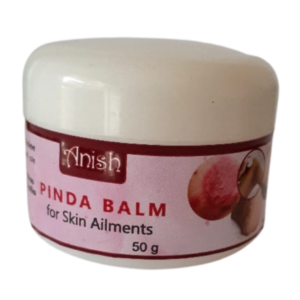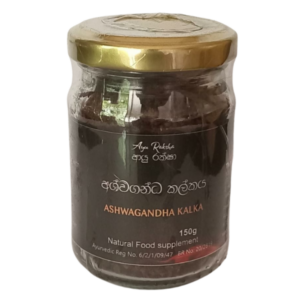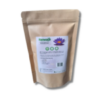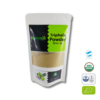Cardiospermum halicacabum, commonly known as balloon vine, heart seed, or love in a puff, is a climbing plant native to tropical and subtropical regions. It has been widely used in traditional medicine, particularly in Ayurveda, for its medicinal properties. The plant is valued for its anti-inflammatory, analgesic, and therapeutic benefits. Below are the key health benefits associated with Cardiospermum halicacabum:
1. Anti-inflammatory Properties
*Relieves joint pain: Cardiospermum is highly regarded for its ability to reduce inflammation. It is used to treat conditions like arthritis, rheumatism, and gout by reducing joint swelling and alleviating pain.
*Skin inflammation: Its anti-inflammatory effects are beneficial for treating skin conditions such as eczema, psoriasis, and dermatitis.
2. Pain Relief
*Natural analgesic: The plant has natural pain-relieving properties, making it effective for managing muscle pain, joint pain, and general discomfort.
*Post-exercise recovery: It can also be used as a topical application to soothe sore muscles after physical activity.
3. Skin Health
*Heals skin conditions: Cardiospermum is commonly used in traditional remedies for treating itchy, irritated, and dry skin. Its soothing properties make it effective for conditions like eczema, ringworm, and fungal infections.
Wound healing: The plant can be applied to cuts, wounds, and burns to promote faster healing and prevent infections.
4. Respiratory Health
*Treats asthma and bronchitis: In traditional medicine, Cardiospermum is used to alleviate respiratory conditions like asthma, bronchitis, and cough. It helps clear mucus, reduce airway inflammation, and improve breathing.
*Natural expectorant: It aids in expelling phlegm, making it useful for relieving chest congestion.
5. Antimicrobial and Antifungal Effects
*Fights infections: Cardiospermum has strong antimicrobial and antifungal properties, making it effective against a variety of pathogens. It is commonly used to treat skin and scalp infections.
Prevents fungal growth: It can help manage conditions like athlete’s foot and other fungal infections.
6. Digestive Health
*Relieves gastrointestinal discomfort: The plant has mild laxative properties and can be used to treat indigestion, constipation, and flatulence.
Detoxification: Cardiospermum helps cleanse the digestive tract and promotes healthy bowel movements.
7. Nervous System Health
*Calms the nerves: Cardiospermum has a mild sedative effect and can help relieve stress, anxiety, and nervous tension.
*Supports mental well-being: It is believed to promote a sense of relaxation and calmness, improving overall mental health.
8. Anti-allergic Effects
*Treats allergies: The plant is used in traditional medicine to manage allergic reactions, including skin allergies, hay fever, and hives.
Reduces histamine response: Its ability to modulate the immune response can help alleviate allergy symptoms.
9. Cardiovascular Health
*Supports heart health: Cardiospermum is believed to have cardioprotective effects. It helps reduce inflammation in blood vessels and promotes healthy circulation.
*Regulates blood pressure: It may help in maintaining healthy blood pressure levels by improving vascular function.
10. Antioxidant Properties
*Fights free radicals: The plant is rich in antioxidants, which protect cells from oxidative stress and reduce the risk of chronic diseases.
Promotes healthy aging: By neutralizing free radicals, it helps delay signs of aging and supports overall health.
11. Antipyretic Properties
*Reduces fever: In traditional medicine, Cardiospermum is used to reduce fever and manage associated symptoms such as chills and body aches.
12. Hair Care
*Promotes scalp health: The plant is used in Ayurvedic hair care formulations to treat dandruff, scalp irritation, and hair fall.
Strengthens hair: Its nutrients nourish the scalp and strengthen hair follicles, promoting healthier hair growth.
How to Use Cardiospermum halicacabum
Paste: Make a paste using fresh leaves and apply it to affected areas for joint pain, wounds, or skin conditions.
Oil: Cardiospermum oil is widely used for massaging joints and soothing inflamed skin.
Tea/Infusion:Boil fresh or dried leaves in water to prepare a herbal tea. Drink it to relieve respiratory issues, digestive discomfort, or general inflammation.
Poultice:Crush the leaves and use them as a poultice for treating wounds, burns, or inflamed joints.
Capsules or Powder:Cardiospermum powder or capsules are available in supplement form and can be taken as directed for overall health benefits.
Precautions
Pregnancy and lactation: Pregnant and breastfeeding women should consult a healthcare provider before using Cardiospermum.
Allergic reactions: Conduct a patch test before applying the plant topically to rule out any potential allergic reactions.
Dosage: Stick to recommended dosages to avoid adverse effects, especially when using internal preparations.





























Reviews
There are no reviews yet.